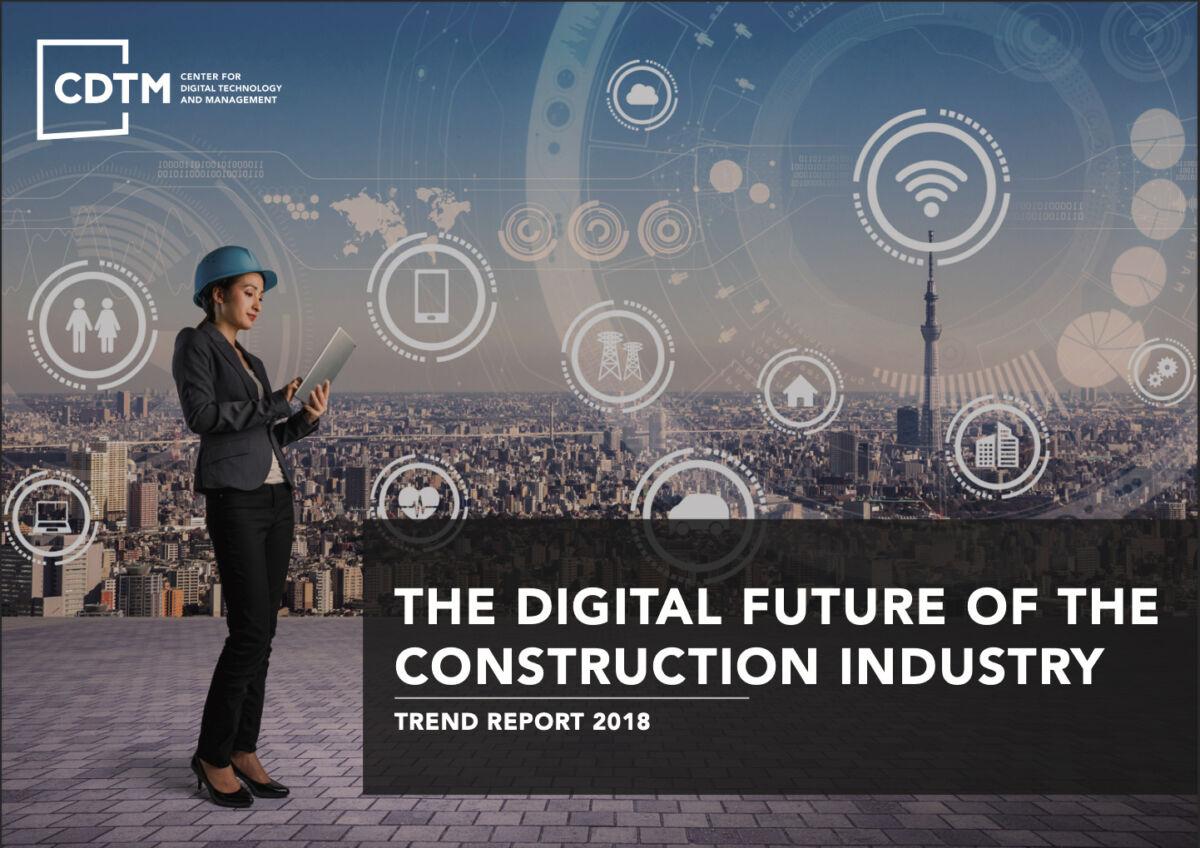The digital future of the construction industry
Class: Fall 2018 Munich

Abstract
Digital technologies are constantly pushing us towards an ever more connected world and have a significant impact on our daily private and business life. Whereas our living environment becomes more and more reliant on digital technologies, the construction industry – responsible for building this environment – is still almost entirely detached from the digital age. However, with the increasing complexity of future cities, new technologies provide an ideal starting point to enable the shift towards a digital construction industry. This opens up new potentials for more efficient and sustainable construction processes on the one hand and new business opportunities for construction contractors on the other hand. This report identifies current trends that affect the digitization of the construction industry and derives four future scenarios as well as five related business ideas.
Trends
Technology Trends
- Construction Automation
- Digitalization and Data Collection
- Augmented Workforce
- Visualization
- Artificial Intelligence
- Remote Collaboration and Communication
Societal & Environmental Trends
- Space as a Service
- Downsizing Living Space
- Increasing Selectivity in Employer Choice
- Customization
- Green Building
- Migration of Labor Force into Local Market
Legal & Political Trends
- Citizen Empowerment
- Promotion of BIM-Usage
- Standardized Waste Management Regulations
- Increasing Energy Efficiency Regulations
- Smart Contracts
- Data Regulations
- Recovering Government Infrastructure Spending
Economic Trends
- Deceleration in New Residential Construction
- Skilled Labor Scarcity
- Increased Cross-Border Activities
- Local Market Consolidation
- Innovative Market Entries
- Productivity Improvement
Business Models Trends
- Prefabrication
- Life Cycle Planning
- Value Chain Reconfiguration
- Emerging Digital Platforms
- Cross-Company Collaboration
- Flexible Resources
Report
"Market structure": The concept of a market structure is understood as those characteristics of a market that influence the behavior and results of the firms working in that market. The main aspects that determine market structures are: the number of agents in the market, both sellers and buyers; their relative negoti- ation strength, in terms of ability to set prices; the degree of differentiation and uniqueness of goods and services; and the ease of entering and exiting the market. One of the most influential factors is picked to picture the scenarios of the construction industry in 2050, which is the number of con- struction companies in the market.
"Customization": Advancements in technology have enabled companies to study the needs and choices of customers and to commu- nicate with them individually, rather than talking to a whole segment of customers. Collaborative modelling tools and additive manufacturing technology reduce both time and costs and, thus, allow for changes to be implemented quickly, which leads to more product variation. Therefore, customiza- tion describes the integration of customer preferences into production processes. This way, individuals can be connected with objects that reflect their personal style or life choices. In the context of construction, it refers to the degree of custom- er integration into producing material units for residential, commercial, and publicly used entities. The term “entity” is intentionally kept broad to account for changing living and working concepts that can radically differ from current forms.
"Butler Industry": A world, in which the construction industry has become even more fragmented than today, due to more freelancing and cheap technologies. Individual customer expectations are very demanding and can be met individually using technologies, such as 3D printing.
"Construct-mazon": A future w ith a fully centralized construction market where customers require high means of customization options.
"Winner build it all": A future referring to a centralized market with high standardization across offered building products.
"Clone wars": This scenario implies a heavily fragmented market with plenty of participants offering standardized solutions.
Exploration
1. CONAS: A virtual audio assistant for on-site efficiency
2. CRAIDAR: Enabling connectivity and progress tracking on the construction site
3. BIMLENS: Making BIM more accessible on-site with Augmented Reality
4. LOQUI: Enabling simple communication and task management on the construction site
5. MODULO: Customizable modular apartment solutions
Partners
